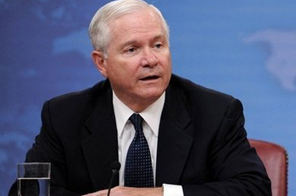Nuclear conference slams Israel
VIENNA: Overriding Western objections, a 150-nation nuclear conference on Friday passed a resolution directly criticizing Israel and its atomic program for the first time in 18 years. Iran hailed the vote as a "glorious moment."
The result was a setback not only for Israel but also for the U.S. and other backers of the Jewish state, which had lobbied for 18 years of past practice — debate on the issue without a vote. It also reflected building tensions between Israel and its backers and Islamic nations, backed by developing countries.
Of delegations present at the International Atomic Energy Agencymeeting Friday, 49 voted for the resolution. Forty-five were against and 16 abstained from endorsing or rejecting he document, which "expresses concern about the Israeli nuclear capabilities," and links it to "concern about the threat posed by the proliferation of nuclear weapons for the security and stability of the Middle East."
The result once again exposed the deep North-South divide gripping IAEA meetings.
The United States and its allies consider Iran the greatest proliferation threat, fearing that Tehran is trying to achieve the capacity to make nuclear weapons despite its assertion that it is only building a civilian program to generate power. They also say Syria — which, like Iran is under IAEA investigation — ran a clandestine nuclear program, at least until Israeli warplanes destroyed what they describe as a nearly finished plutonium-producing reactor two years ago.
But Islamic nations insist that Israel is the true danger in the Middle East, saying they fear its nuclear weapons capacity. Israel has never said it has such arms, but is universally believed to posses them.
The Muslim countries enjoy support from the developing world which is critical of the U.S. and other nuclear weapons nations for refusing to disarm and suspects that developed nations are trying to corner the market onpeaceful nuclear technology to their disadvantage.
Israeli delegate David Danieli denounced the vote as "openly hostile to the state of Israel" and accused Iran and Syria of "creating a diplomatic smoke screen" to cover up their "pursuit of nuclear weapons."
But chief Iranian delegate Ali Asghar Soltanieh said the vote should serve as a warning to Washington and other supporters of the Jewish State.
"The U.S. Administration .... has received a message that they should not continue supporting Israel at any price," he told reporters.
Since the conference passed a harshly worded anti-Israel resolution in 1991, there has been annual Islamic criticism of Israel's nuclear program and its refusal to join the Nonproliferation Treaty. But — until Friday — the West had lobbied successfully against a vote, arguing they could damage hopes of a Middle East peacethrough negotiations.






